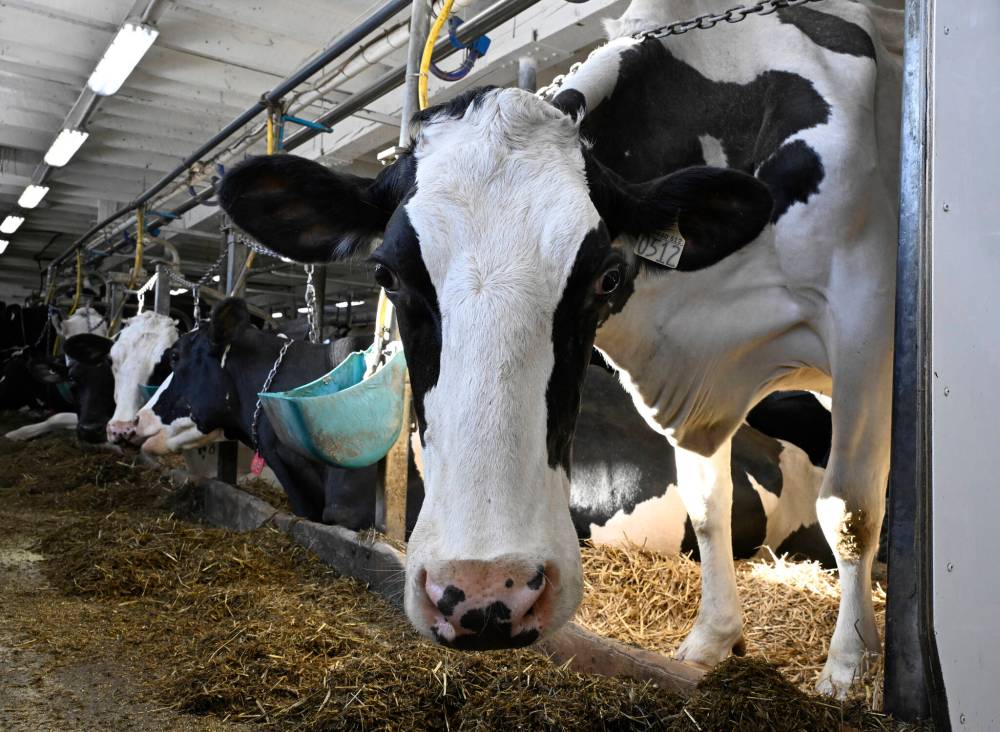Bad neighbours – and maybe bad water, too
Advertisement
Read this article for free:
or
Already have an account? Log in here »
To continue reading, please subscribe:
Monthly Digital Subscription
$1 per week for 24 weeks*
- Enjoy unlimited reading on winnipegfreepress.com
- Read the E-Edition, our digital replica newspaper
- Access News Break, our award-winning app
- Play interactive puzzles
*Billed as $4.00 plus GST every four weeks. After 24 weeks, price increases to the regular rate of $19.00 plus GST every four weeks. Offer available to new and qualified returning subscribers only. Cancel any time.
Monthly Digital Subscription
$4.75/week*
- Enjoy unlimited reading on winnipegfreepress.com
- Read the E-Edition, our digital replica newspaper
- Access News Break, our award-winning app
- Play interactive puzzles
*Billed as $19 plus GST every four weeks. Cancel any time.
To continue reading, please subscribe:
Add Winnipeg Free Press access to your Brandon Sun subscription for only
$1 for the first 4 weeks*
*$1 will be added to your next bill. After your 4 weeks access is complete your rate will increase by $0.00 a X percent off the regular rate.
Read unlimited articles for free today:
or
Already have an account? Log in here »
In normal situations, it would seem like grown-ups could talk about their mutual concerns and reach a fair compromise.
After all, we’re not four-year-olds, wanting to keep each and every one of the toys for ourselves.
Oh, wait: that’s not the way it is now. Our “America first” neighbour to the south is intent on keeping every one of the toys for themselves, whether that’s with tariffs or streamlining project approvals by stripping environmental rules.

Jacques Boissinot / The Canadian Press
A cow in a dairy farm in Saguenay, Que.
And water is very much one of those toys, especially when we have it, and the U.S. doesn’t: (toddler-like screaming ensues).
In an “America first” world, U.S. President Donald Trump has already mused publicly about transboundary water questions, most of all arguing that Canada should turn on the “very large faucet” to supply water to the United States.
“So you have millions of gallons of water pouring down from the north with the snow caps in Canada and all pouring down,” Trump said during the election campaign. “And they have essentially a very large faucet. And you turn the faucet and it takes one day to turn it. It’s massive.”
So, perhaps you should ask yourself about the probable outcome of plans for a massive North Dakota dairy, and its impacts on the water quality of the Red River.
On the face of things, you might expect that existing Canada-U.S. rules would protect us from bad choices by our near-neighbour. After all there’s been a treaty in place for the last 116 years that has given a joint commission final say in how water systems that cross the border between the U.S. and Canada are managed.
The 1909 Boundary Water Treaty set rules on things like water usage, diversion and pollution: as our federal government puts it, Section IV of that treaty “also stipulates that boundary and transboundary waters shall not be polluted in either country to the injury of property or health of the other country.” Issues under the treaty are handles by the International Joint Commission, which boasts three representatives each from Canada and the U.S.
And that brings us to two North Dakota mega-dairy projects: Owned by Riverview Farms, the Richland County Abercrombie Dairy (12,500 cows) and the Traill County Herberg Dairy (25,000 cows) will massively increase dairy operations near the Red River, producing (in addition to dairy products) huge amounts of manure — one observer cites manure volumes equal to “52 Canadian-sized football fields at a depth of 20 feet every single year.” Both mega-dairies have now been approved by the government of North Dakota.
And both have garner plenty of opposition on both sides of the border, because they plan to store than manure and use it as agricultural fertilizer, running the risk of runoff into the Red River, a pollutant that would eventually reach Lake Winnipeg and beyond.
Manitoba’s Environment and Climate Change Minister, Mike Moyes, has written to the International Joint Commission, as well as to the federal environment minister and the governor of North Dakota.
Letters are nice, but reading the tea leaves — or perhaps, casting your eyes across acres of spread manure — suggests that if this turns into any kind of resource fight, a dignified reference to long-standing treaties and processes is not going to deliver the kind of solutions that will protect the Red River.
Making America great again obviously does not include protecting the American environment again or protecting natural resources and beauty for American children again.
One can only imagine a worldview where America always comes first invariably means a worldview that cares not one bit about what happens across the border in Canada.
Water may flow downhill, but protecting the Red River from American manure will be an all-uphill battle.

